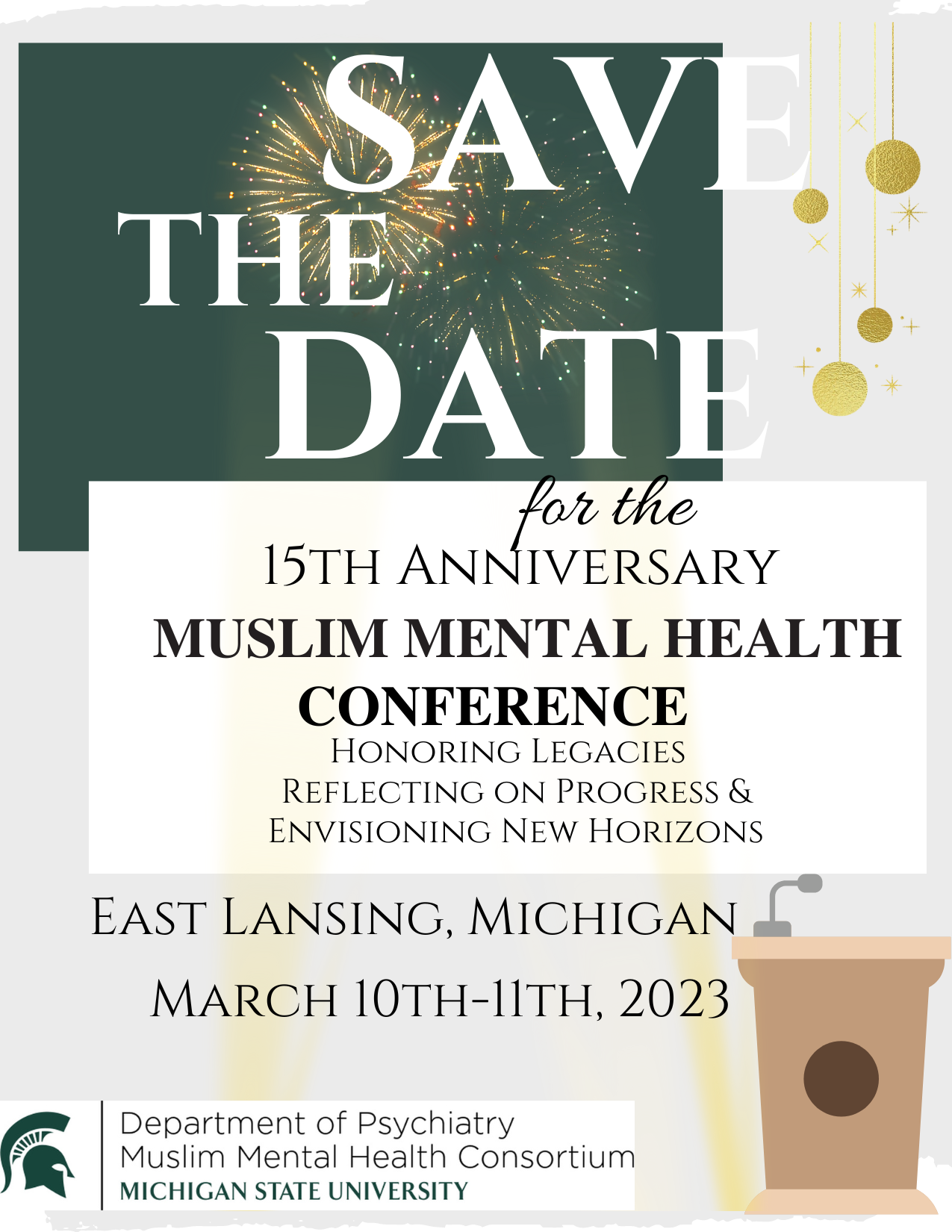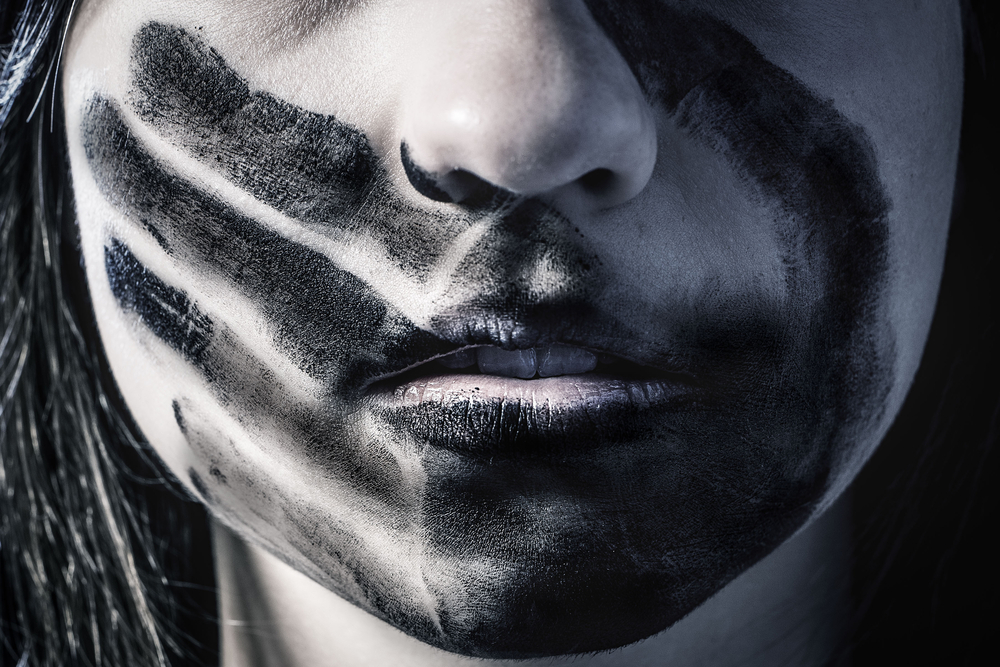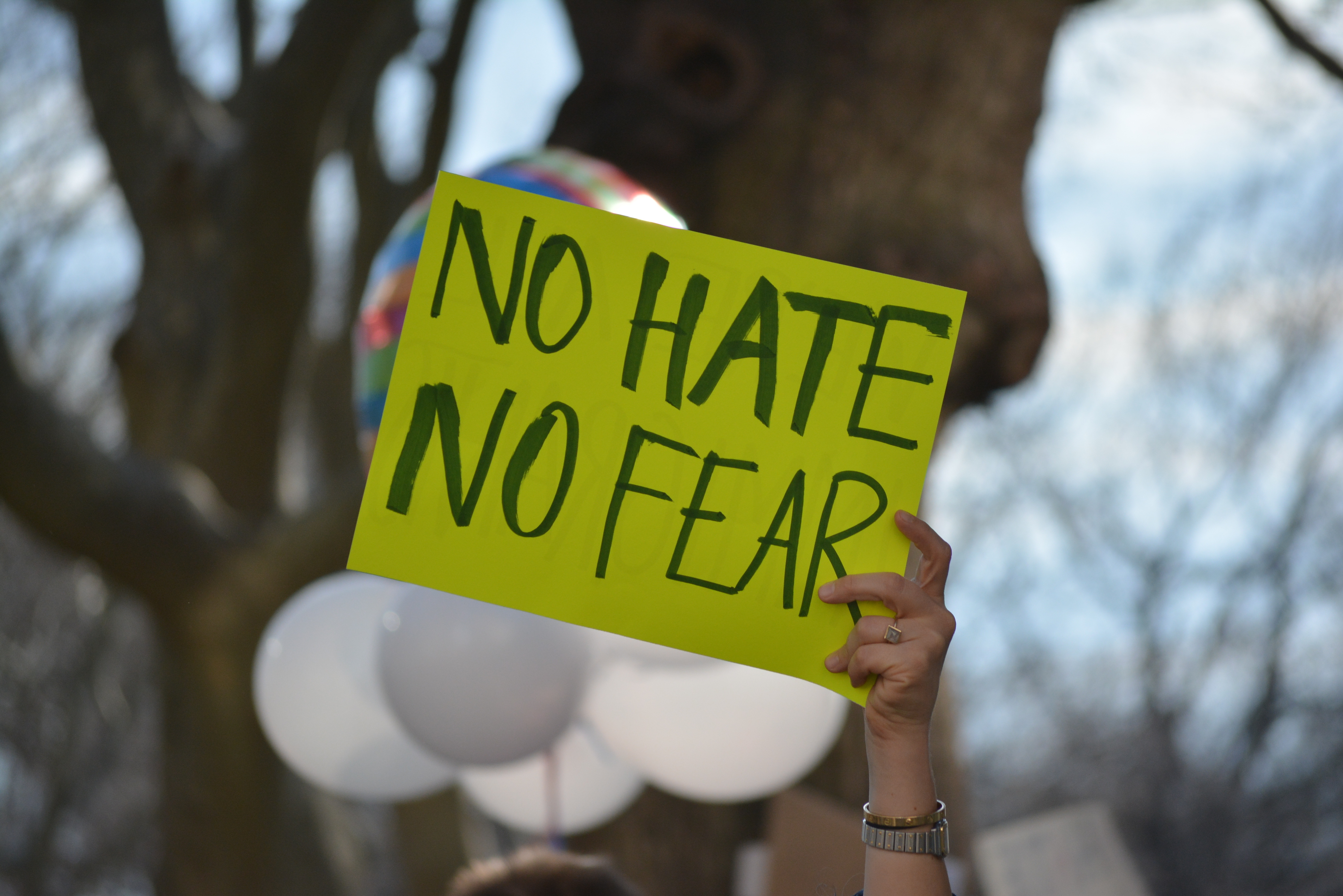Research
The Dangers of Social Media for Children: An Islamic Perspective
In today’s digital age, social media has become an integral part of daily life, influencing how
people interact and consume information. However, for children, excessive social media use
poses significant risks to their physical, emotional, and spiritual well-being. As Muslims, it is
imperative to consider the impact of social media and take proactive measures to protect our
children from its harmful effects.
Muslim Mental Health Conference March 10-11, 2023!
Accepting Abstracts Until December 1st, 2022 15th Annual Muslim Mental Health Conference Honoring Legacies, Reflecting on Progress, and Envisioning New Horizons March 10-11, 2023 Michigan State University & OnlineEast Lansing, Michigan, USA The history of Muslims addressing mental health extends back to Prophetic times, and to inform our current practice and future we must acknowledge…
Read MoreExploring the Darkness: Self-Harm and Drug Use in Muslim Youth
Stigma surrounding mental health is something that every community deals with, even in this current day and age. These stigmas are even more pronounced in traditional religious communities where mental illness gets chalked up to supernatural entities. As a result, many individuals in Muslim communities, especially the youth, do not get the attention they need in order to properly and safely tackle mental health issues. Two issues that are relevant in the lives of many Muslim youth today are self-harm and substance abuse. These two issues, already a serious global health and medical problem affecting people of many backgrounds, are highly stigmatized within Muslim populations. This leads to a lack of self-reporting and subsequently, a lack of treatment for those harming themselves physically or through repeated drug use.
Read MoreMapping Muslim Mental Health Research Globally
The global Muslim community continues to grow. By 2030, the Muslim population is expected to reach 2.2 billion of the world’s population. The gap in mental health care services is seen across communities, and a major part of the challenge is how to deliver culturally relevant care. For many Muslims, integrating spirituality and religious tradition is an integral part of maintaining emotional health. As such, limited but emerging Muslim mental health (MMH) literature is beginning to describe the emotional health needs and models of managing mental health care issues.
Read More“Here For You” – Naseeha Mental Health
For Naseeha Mental Health, ‘here for you’ is more than just a social media hashtag. It reflects Naseeha’s nearly 15-year presence as the first line of contact for mental health services for the North American Muslim Community.
Read MoreLet’s Talk About Sex…And Muslim Mental Health
The relationship between sexual health and mental health is not always obvious and not often spoken about. However, our experiences with sex, our sexualities, and social prescriptions for sexual behaviour can have a profound influence our mental health, and so those working in mental health care with Muslim clients need to pay attention to the research, however limited it is, on the sexual health of Muslims.
Read MoreBehind Closed Doors: Porn and Young Muslims
There is a lack of education and available resources for addressing sexuality with young Muslims in an age-appropriate manner and through an Islamic lens. This becomes worrisome when students are opted out of sex-education classes at school with no alternative education at home or in Islamic institutions. Muslim parents are not fully equipped to have the ‘birds and the bees’ talk with their children and this becomes problematic when curiosity outside the classroom leads to the dark web.
Read MoreJMMH Sneak Peek: The Cultural Context of Intimate Partner Violence
“A 27-year-old Iranian woman who arrived in the United States only a few months ago has died after a brutal beating that police in Michigan attribute to her new Iranian-American husband. The victim was living in one of the more remote parts of the United States. She was declared brain dead three days later. A hookup with a laptop camera allowed the family to see her on the last days.”
Read MoreFive Findings from the 2017 Pew Report
The Pew Research Center study “U.S. Muslims Concerned About Their Place in Society, but Continue to Believe in the American Dream” focused on a wide variety of topics concerning American Muslims in the context of Trump’s presidential campaign and his initial months in office. Five findings of the 198-page report are particularly relevant for mental health professionals who care for American Muslims.
Read MorePost-Trump Stress Disorder (PTSD): Join a Survey on the Impact
Political analysts, bloggers, comedians, and researchers have kept the recent presidential election in the limelight through endless polls, studies and news articles. While the outcome of this election along with the antiquated electoral college is called into question, we cannot dismiss the unique significance of this political era regardless of one’s party affiliation. Trump’s victory has left most of us head-scratching – or, perhaps, hair-pulling. Some of us have been compelled to seek mental health services and even need medication to cope with the heightened anxiety, uncertainty, and hostile climate. This has been especially true for those who fall into the branded groups cast out by the Trump Administration, with Muslims near the top of the list of undesirables. In a seeming war between good and evil, our world appears upside down.
Read More









